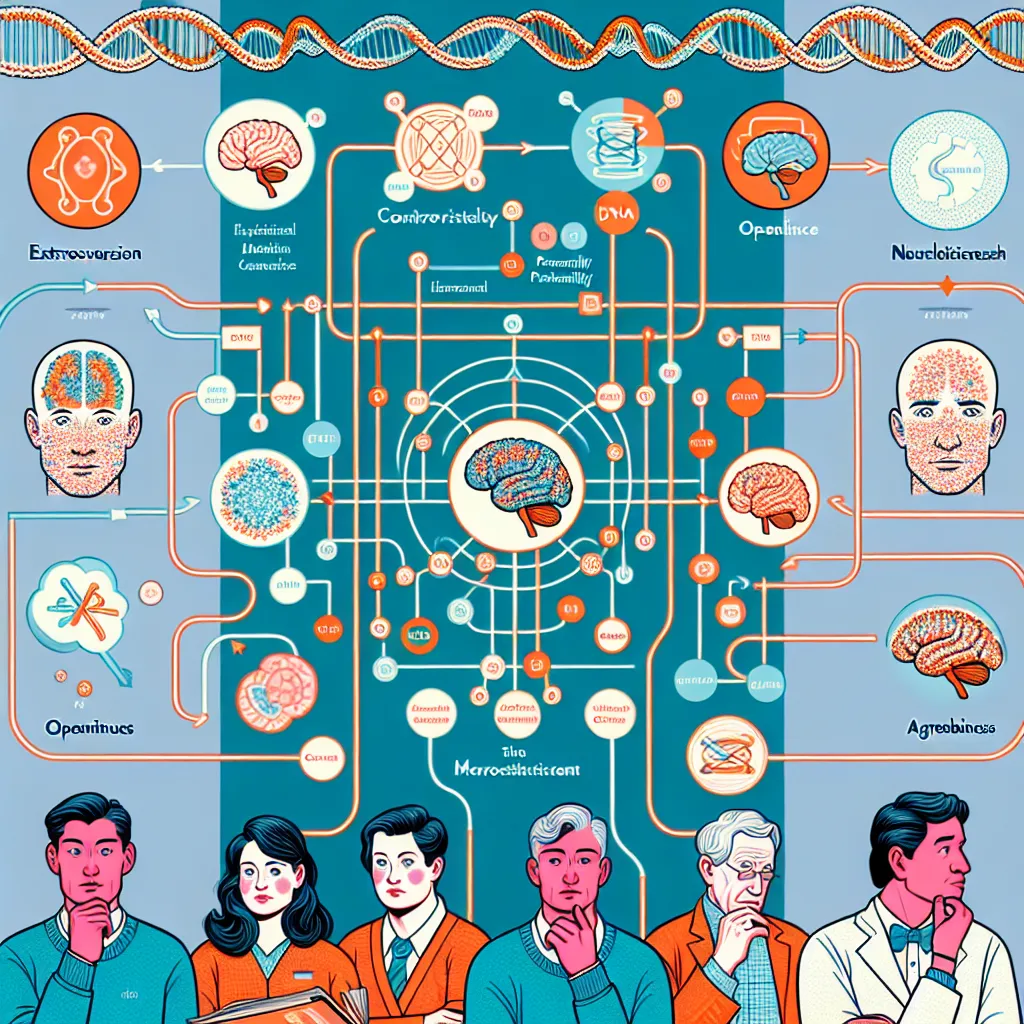**Genetic Factors in Shaping Personality Traits**
Personality traits are the distinguishing patterns of thoughts, feelings, and behaviors that make each individual unique. Traditionally, our understanding of personality has been shaped by the foundational perspectives of psychology focusing on environmental influences, learning histories, and cultural norms. However, as scientific research has advanced, there has been an increasing acknowledgment of the role that genetics plays in the development and expression of personality traits. This article delves into the intricate interplay between our DNA and the diverse characteristics that makeup who we are.
The burgeoning field of behavioral genetics has taken center stage to unravel the genetic underpinnings of personality. Twin studies, which compare the similarity in personality traits between monozygotic (identical) and dizygotic (fraternal) twins, have provided significant insights. Identical twins share virtually all of their genes, while fraternal twins share about half, on average. If genetics did not play a role in personality, we would expect that identical and fraternal twins would share personality traits to a similar degree when reared together. However, research consistently shows that identical twins are more alike in their personality traits, even when they are raised apart, signifying a strong genetic component.
One of the major personality models in psychology is the Big Five, which identifies five broad trait dimensions: openness, conscientiousness, extraversion, agreeableness, and neuroticism (often referred to with the acronym OCEAN). These traits have been the focus of extensive genetic research. Findings suggest that there is a significant heritable component to these traits, with heritability estimates ranging from 40% to 60%. This means that about half of the variation in personality traits among individuals can be attributed to genetic differences.
The question then arises: what specific genes are involved in the shaping of personality traits? Genome-wide association studies (GWAS) have attempted to identify these genes. However, the search has proven more complex than initially thought. Rather than a few genes having a large impact, it appears that personality traits are influenced by many genes, each having a small effect. An implication of this is that there is no such thing as a single “personality gene.” Instead, the genetic architecture of personality is polygenic, requiring the interaction of numerous genetic variants.
Besides, it’s crucial to recognize that genes do not operate in isolation from the environment. The concept of gene-environment interaction (GxE) is pivotal in understanding personality development. For example, a person may possess genetic variants associated with high extraversion, but if they grow up in an environment that discourages social interaction, their extraversion may not manifest as strongly. Conversely, someone with genetic predispositions toward introversion might become more outgoing in a highly nurturing and socially stimulating environment.
Epigenetics, the study of heritable changes in gene expression that do not involve modifications to the DNA sequence, also underscores the dynamic relationship between genetics and environment. Epigenetic mechanisms can be influenced by a variety of factors, including stress, diet, and overall lifestyle. These changes can potentially alter the way personality traits are expressed, without altering the underlying genetic code.
It’s also interesting to consider the evolutionary perspective on the genetic basis of personality. Certain personality traits may have offered survival and reproductive advantages in our ancestral environments, explaining why these traits persist in the gene pool. For instance, conscientiousness can lead to more effective resource gathering and planning, while agreeableness might foster stronger cooperative relationships within social groups.
Despite the progress made, genetic research into personality is still in its infancy. What is clear, however, is that the inheritance of personality is not deterministic. Identical twins with the same genetic makeup can still exhibit differences in their personalities, highlighting the substantial role that non-genetic factors play. These non-genetic factors may include random biological processes that occur during development and the unique experiences that each individual encounters throughout their lifetime.
In conclusion, the quest to understand the role of genetics in shaping our personality traits is a complex but fascinating endeavor. Through the concerted effort of behavioral genetics, psychology, neuroscience, and related fields, we are starting to comprehend how the tapestry of genes we inherit interacts with the environment to mold the diverse range of human personality. While the genetic influences are substantial, they do not dictate our destiny. Personal experiences, culture, and choice continue to assert their position in the equation, ensuring that the story of our personality remains wonderfully multifaceted and, to some extent, authored by ourselves.



Leave a Comment